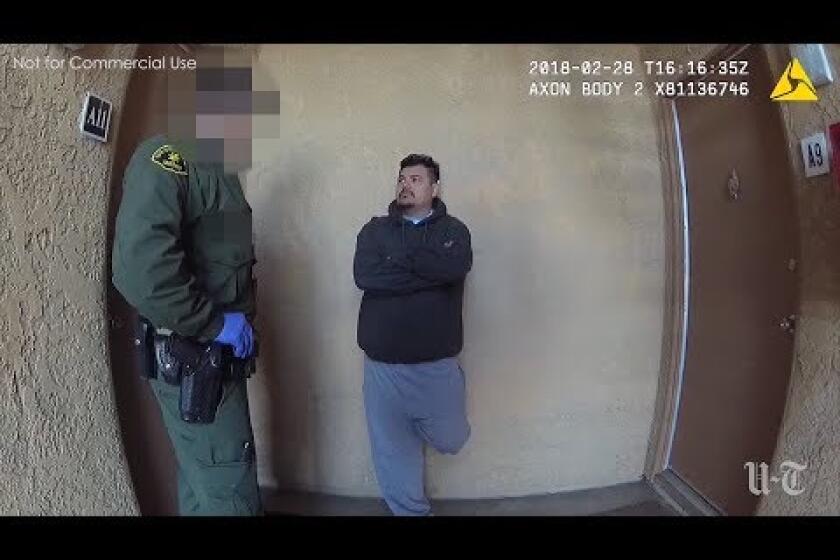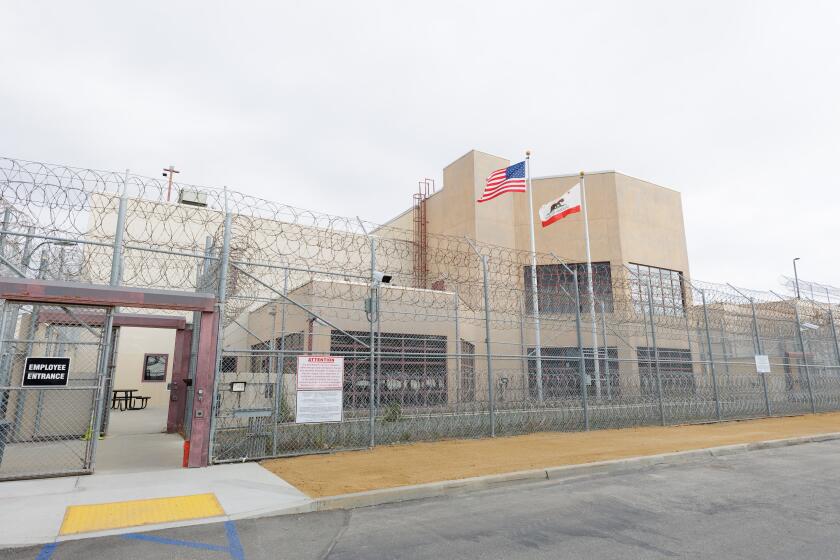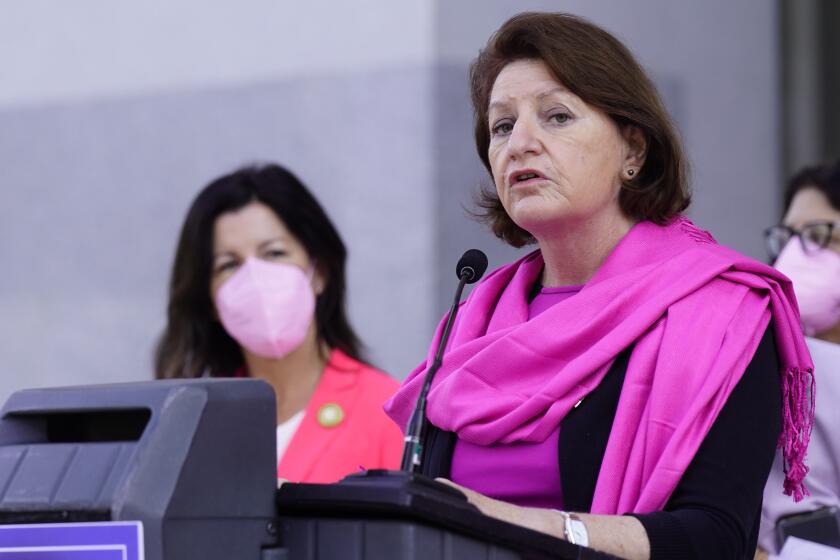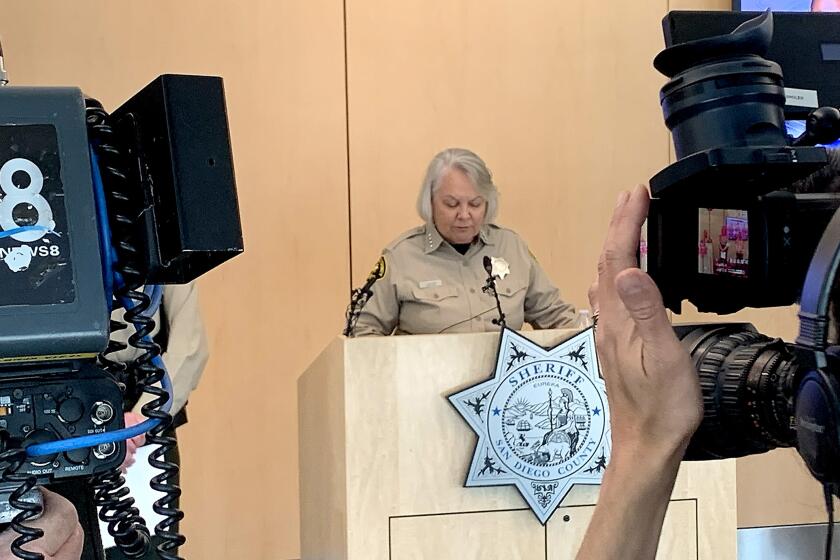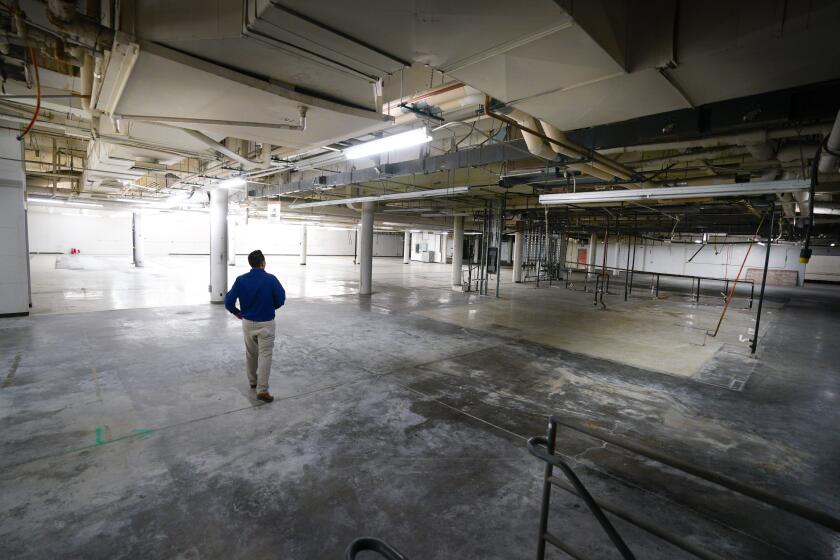‘We’re begging for help’: Jailed people and their families ask court to force immediate change
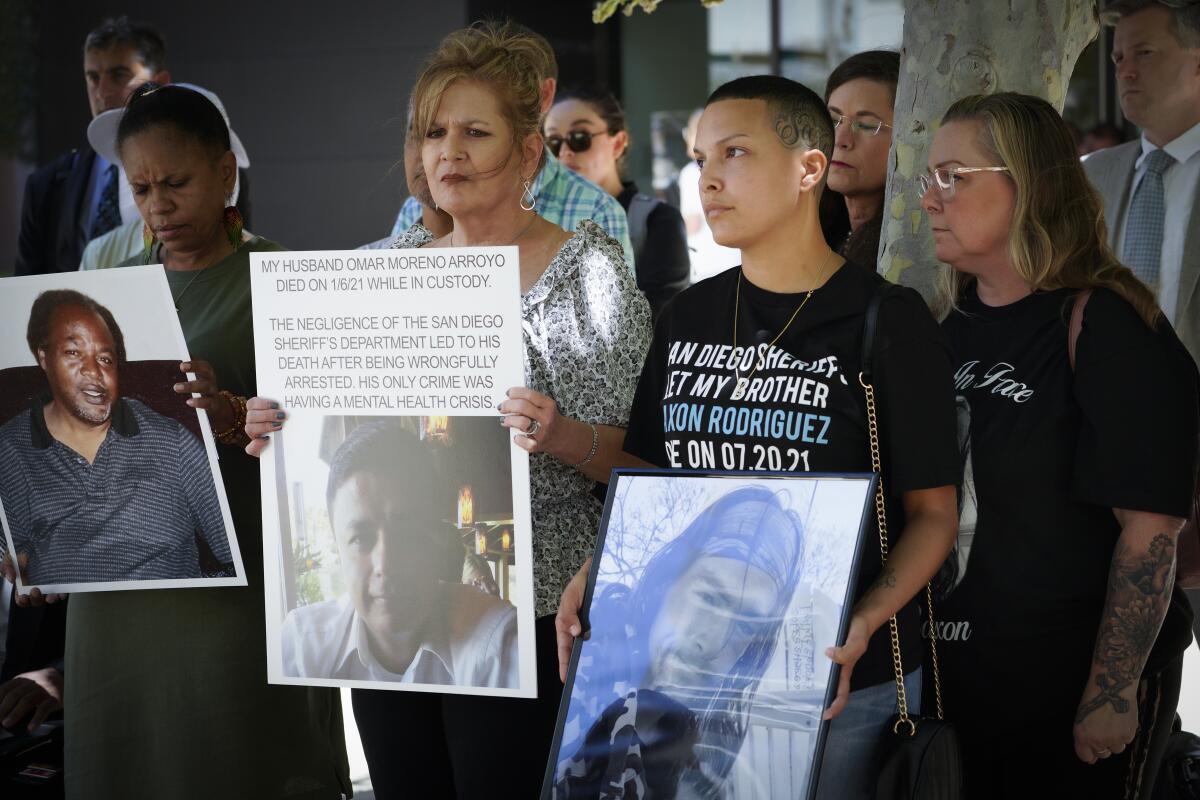
‘Jail policies and procedures are putting people at the risk of harm,’ plaintiffs’ lawyer says
In a San Diego federal courtroom Thursday, an attorney representing people incarcerated in the county’s jails argued that more people will die if the Sheriff’s Department isn’t forced to make immediate changes to mental health care, addiction treatment and security, especially related to drugs brought into the jails.
Get our essential investigative journalism
Sign up for the weekly Watchdog newsletter for investigations, data journalism and more.
You may occasionally receive promotional content from the San Diego Union-Tribune.
Van Swearingen with the law firm Rosen Bien Galvan & Grunfeld — one of four firms suing over what they argue are significant deficiencies — said each remedy they were asking for had a direct link to a recent death.
So far this year, 15 people have died in San Diego jail custody, four of them in July alone. That puts the county on pace to exceed the record 18 deaths last year.
“Jail policies and procedures are putting people at the risk of harm,” Swearingen said.
The plaintiffs asked the court for emergency relief in May, after first suing over jail conditions in February. Their motion sought to force the Sheriff’s Department to fix broken emergency call systems and surveillance cameras, overhaul the system intended to detect when drugs are brought into the jail and make other changes.
They filed their more than 200-page lawsuit one week after the release of a highly critical state audit that found that San Diego County jails had the highest mortality rate of California’s largest counties.
Independent researchers say Sheriff’s Department jail-mortality rate is the ‘most acute’ among California’s 12 largest counties
A subsequent report commissioned by the county’s Citizens Law Enforcement Review Board found that San Diego has the highest number of “excess deaths” among California’s 12 largest county jail systems — that is, the highest number of deaths above what would be expected based on a standardized population of those systems — and that the risk of overdose deaths was highest in San Diego jails.
The mortality rate findings of both reports echo the results of a six-month investigation by The San Diego Union-Tribune published in 2019.
The February complaint and subsequent filings include nearly three dozen sworn declarations by incarcerated people and experts in jail policy that describe lapses in care.
In one declaration, a disabled veteran said he suffered a stroke and was ignored when he tried to summon help via the emergency intercom in his cell.
In another, a man with an opiate addiction described repeatedly — and unsuccessfully — submitting medical slips requesting that he be placed on the jail’s medication-assisted treatment regimen. “I have not received any other medication or counseling for my addiction while at the Jail,” he wrote.
Another man described the death of his friend and cellmate, who had collapsed in between a set of bunk beds.
“I ran over to him right away. I gave him chest compressions and we took turns giving him CPR, but no one responded. People were yelling ‘man down’ and ‘help,’ but still no one responded.”
In another declaration, a mental health clinician described the Central Jail’s enhanced-observation housing for suicidal individuals as a “Game of Thrones”-style dungeon.
Judge Anthony J. Battaglia kept Thursday’s hearing short and appeared unpersuaded by the plaintiffs’ arguments for ordering immediate changes in the jails.
“We’re not going to go issue by issue,” he responded when Swearingen offered to elaborate on the declarations.
An attorney for the county, Susan Coleman, told the judge that the Sheriff’s Department has already made significant changes — such as adding kiosks with doses of the overdose-reversal drug naloxone to jail living units and auditing safety checks to ensure they’re completed — to address the issues raised in the state audit and the lawsuit.
“I have been very impressed with [sheriff’s] staff efforts to make jails clean and safe,” Coleman told the judge.
Battaglia said he would take the matter under submission and rule on the plaintiffs’ motion after he has reviewed the case. Even if he ultimately denies the request for an emergency injunction, the lawsuit will still proceed.
Before the hearing, family members of people who have died in custody and community groups advocating for changes to San Diego jails held a press conference outside.
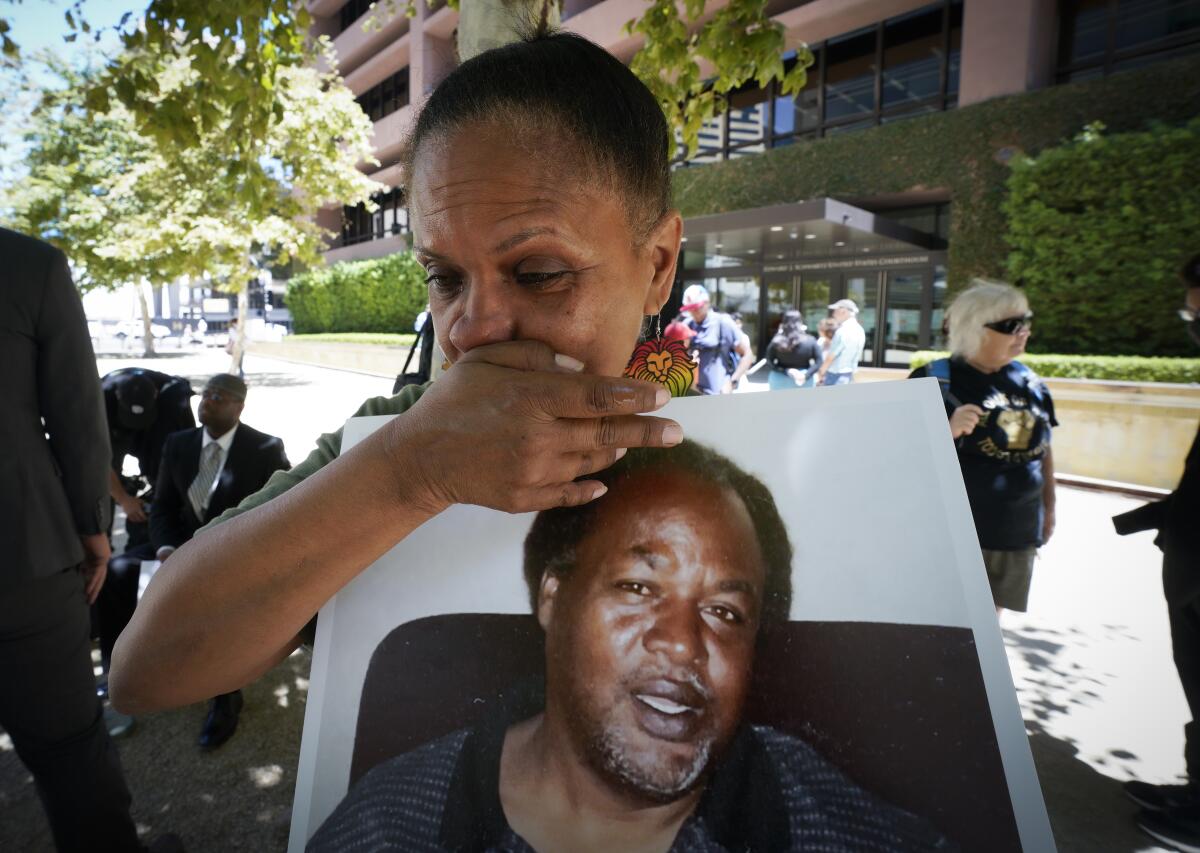
Shawn Mills, whose brother Kevin Lamar Mills died Nov. 11, 2020, said she believes his history of mental illness played a role in his death, which the county medical examiner attributed to heart failure. Mills was incarcerated at the Central Jail and had been found incompetent to stand trial a month and a half before he died.
“Kevin’s mental health issues were well-documented and known by the Sheriff’s Department,” Shawn Mills said.
Deanna Serna said her family had been hoping for more changes in the nearly three years since her older sister Elisa Serna died at the Las Colinas women’s jail.
The 24-year-old, who was suffering from heroin withdrawal, pneumonia and dehydration, had a seizure in her cell and collapsed, hitting her head as she fell. A deputy and jail nurse who witnessed her fall left her alone after she did not respond to commands, an independent investigation found; Elisa was found dead an hour later.
Family lawyer was stunned by finding in 2019 death of Elisa Serna; Sheriff’s Department declines to comment
“We’re begging for help,” Deanna Serna said. “This needs to end.”
After the hearing, Swearingen told family members who attended that the day was a first step in a process “to stop this pattern and practice of horrible deaths happening in the jails. We’ll continue this fight,” he added.
Get Essential San Diego, weekday mornings
Get top headlines from the Union-Tribune in your inbox weekday mornings, including top news, local, sports, business, entertainment and opinion.
You may occasionally receive promotional content from the San Diego Union-Tribune.
